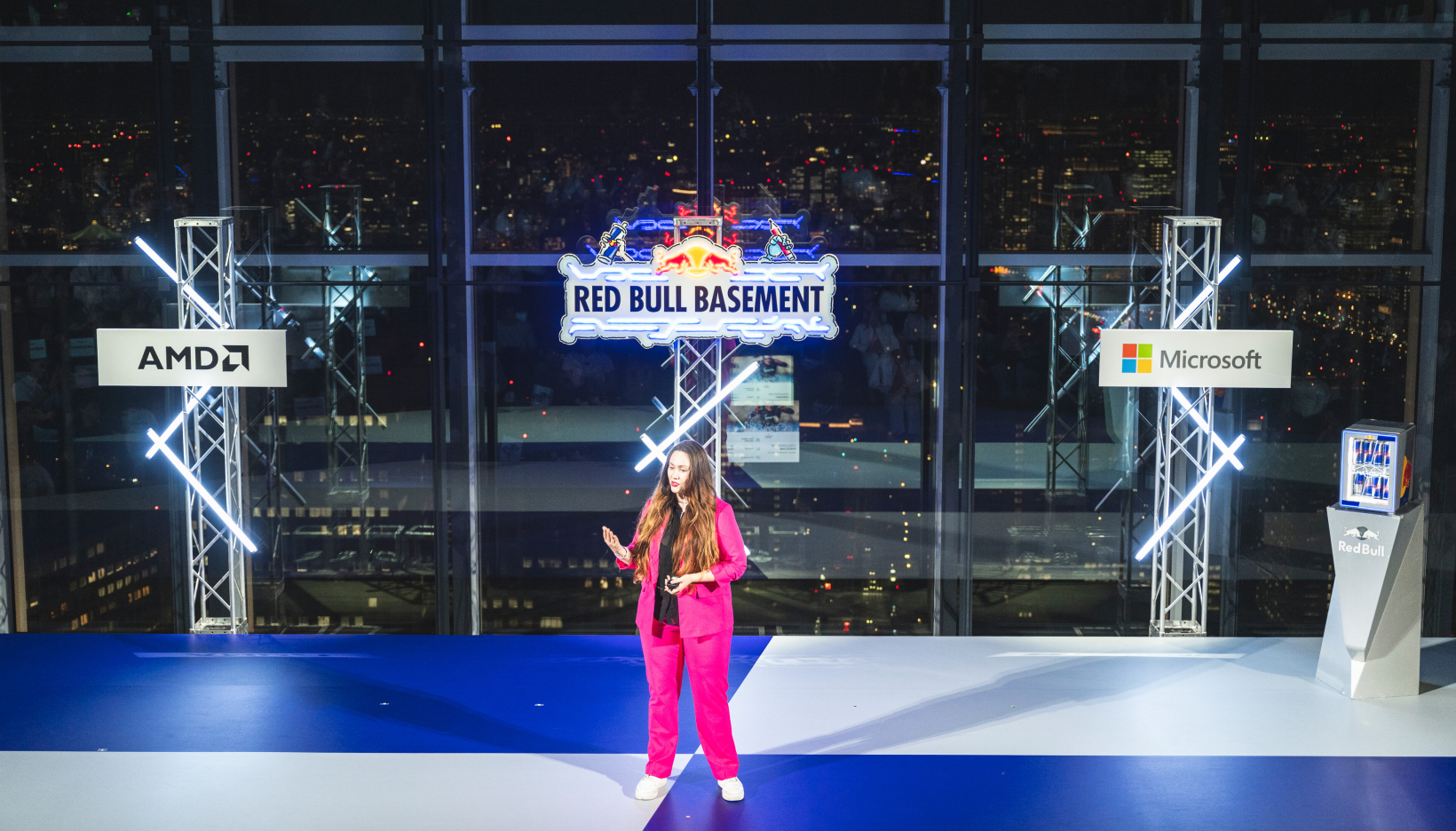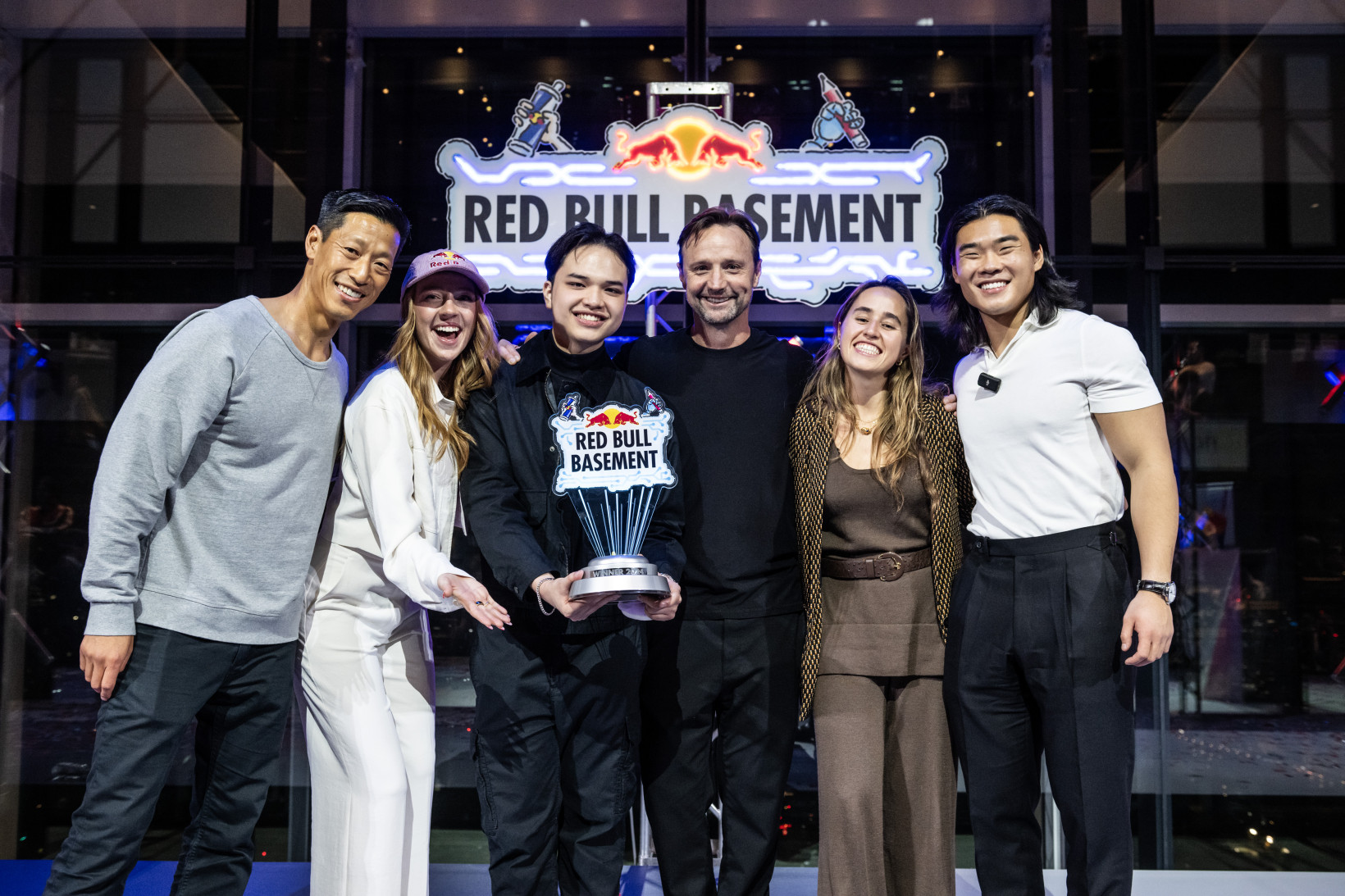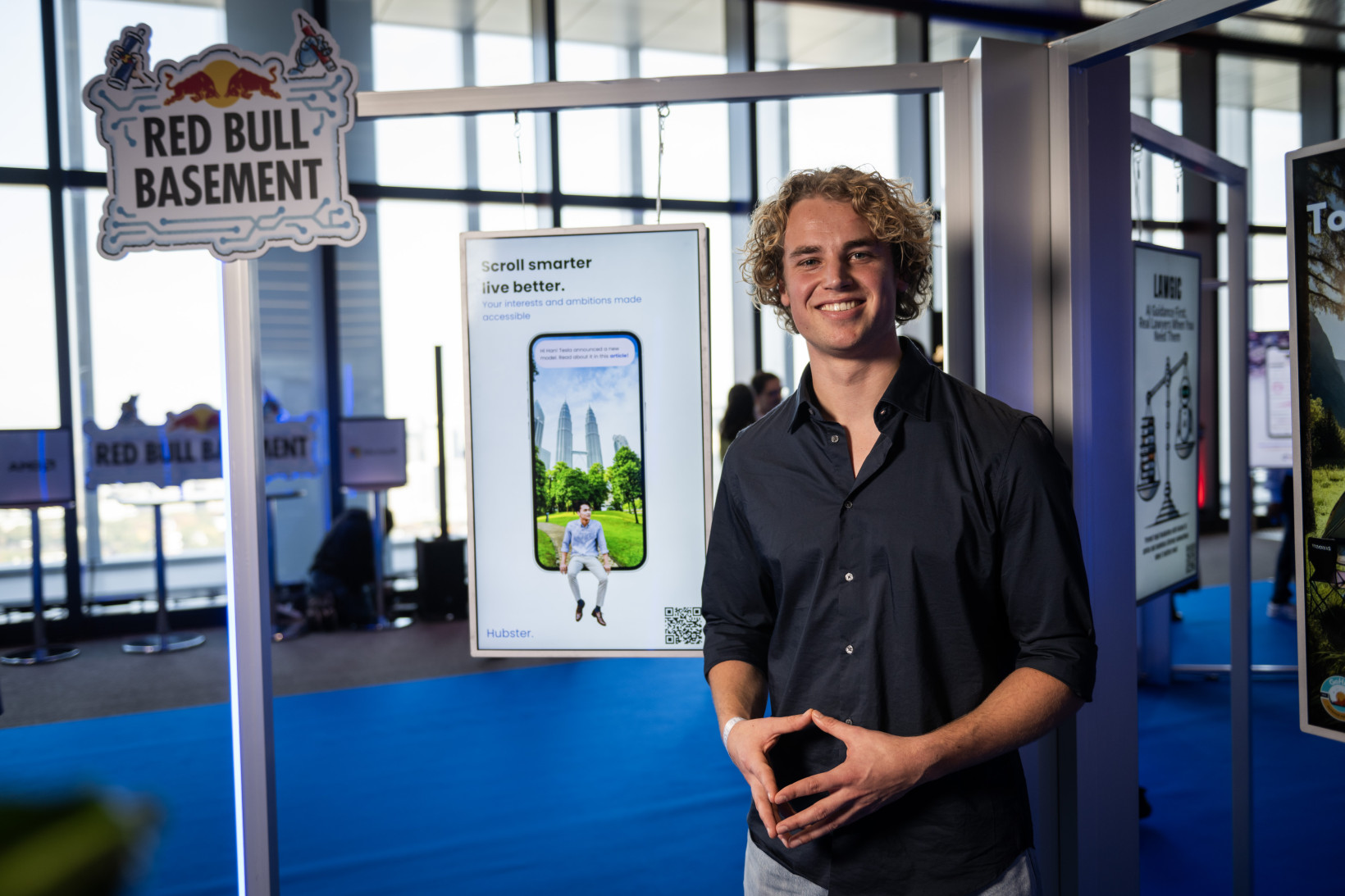At TNW, we are all about supporting and elevating startups and entrepreneurs who are doing epic stuff with tech. When Red Bull reached out to talk about their innovation competition, my first thought was what on Earth do we have in common with an energy drink company that has people jumping off cliffs and surfing really large waves?
Apart from fuelling — in different ways — founders and developers across the world, of course. (Although, I guess, building a company could be considered an extreme sport.)
Turns out, when it comes to supporting young minds that could change the world with their ideas — quite a lot.
Red Bull Basement is the beverage giant’s recurring innovation competition that, in the company’s words, “empowers the next generation of innovators to develop and launch outstanding ideas and disrupt today’s status quo.” The 2024 edition took place across 39 countries, and received over 110,000 submissions.
The local winners were all flown out to Tokyo for a global final across three days over the past week. They got to take part in workshops on business modelling, utilising AI as a founder, creating a successful pitch, forming strategic partnerships, brand development, media relations, etc.

The top 10 got to pitch their ideas to the panel of global judges — and an auditorium of a few hundred people — on the 45th floor, in front of a backdrop of Tokyo lit up at night. The prize for the global winner was an all-expenses-paid three-week trip to San Francisco to be mentored by Silicon Valley-based Plug and Play VC.
Part of the appeal for us as a media organisation was of course access to the judges, including Head of Microsoft for Startups Hans Yang, Plug and Play early-stage investor Letizia Royo-Villanova, and digital economy business mentor Jun Yuh, to pick their brains on how they identify winning startups and exceptional founders (and I did, all of which will follow in another article).
However, what really moved me was the ingenuity, drive, and enthusiasm of the next generation of entrepreneurs.
Ideas included a bone conduction device to help people with Parkinson’s walk more securely built by Cambridge student Jonathan Fisher, whose father suffers from the disease. “I figured, if something is important enough, you should try, even if the odds are against you, because you never know what will happen,” Fisher told TNW.
Another device built by Stanford students in the US wants to give the visually impaired their sight back. There were also water-saving AI-supported gadgets from Greece and Egypt, wild-fire warning systems from South Africa, AI tools to help students connect with mentors and scholarship opportunities from Ireland and Spain or democratise access to high-level sports coaching from Belgium.
Other innovations included early illness detection from Kosovo, brain fitness tracking from the Czech Republic, and an athlete mental training app from Germany — just to name a few.

The winner of the global final was Soi Gamayon from the Philippines with his AgriConnect startup. The AI-powered app, inspired by watching his uncle’s struggle farming rice, allows farmers to monitor their crops, build resilience, and increase their yield.
“My purpose is really to build something bigger than myself,” said Gamayon. “I’m doing this for Filipino farmers. This wasn’t just about competing or winning. It’s about sharing moments and memories with people who are like-minded. I share this with all the other teams who are here.”
The Dutch finalist, fresh out of graduate studies in Strategic Management at the Erasmus University in Rotterdam, was Bram van Peursem, with an app called Hubster. He made it all the way to the top 10.
Based on his own experience of losing hours of precious time to mindless social media scrolling while managing his own schedule as a student, Van Peursem designed Hubster to help people transform their phone usage from a time sink into motivation to act on the things they hope to achieve in life.
Hubster, still under development, will let you enter the interests and ambitions that are currently most important to you. Van Peursem gives the examples of running a marathon, understanding more about tech stocks, and learning German.
As you embark on a scrolling session that will surely end half an hour later with the yucky feeling of “but I was only going to check…” the app will instead prompt you with notifications such as “It’s currently great weather for a 5k recovery run,” “AMD just announced a chip update, read more about it here” and link to an article, or “Nutzen sie ihre zeit so optimal?” with your language learning app of choice.

“It is really focused on making tech positive,” van Peursem told TNW. “Because I think we often forget that our phone is a tool which has all the information in the world, very accessible in your pocket, but nobody uses it like that.”
The desire to build something has been there from the start. “I have always wanted to be a founder,” van Peursem, both of whose parents are entrepreneurs, says. “I’ve always had these ideas but I never really acted on them. And that was also the thing I was most scared about — I want to be an entrepreneur, but what if I never act on it? So I’m really grateful to Red Bull and Microsoft for this opportunity [to make the idea concrete].
Personally, I always feel honoured to tell the stories of people who have ideas and work hard to bring them to reality, striving to impact the world in positive ways. Us journalists only observe and write about it — entrepreneurs are the ones actually building stuff. Mostly just fuelled by pure drive and passion, but sometimes — like when running a startup bootcamp marathon — by copious amounts of caffeine.
